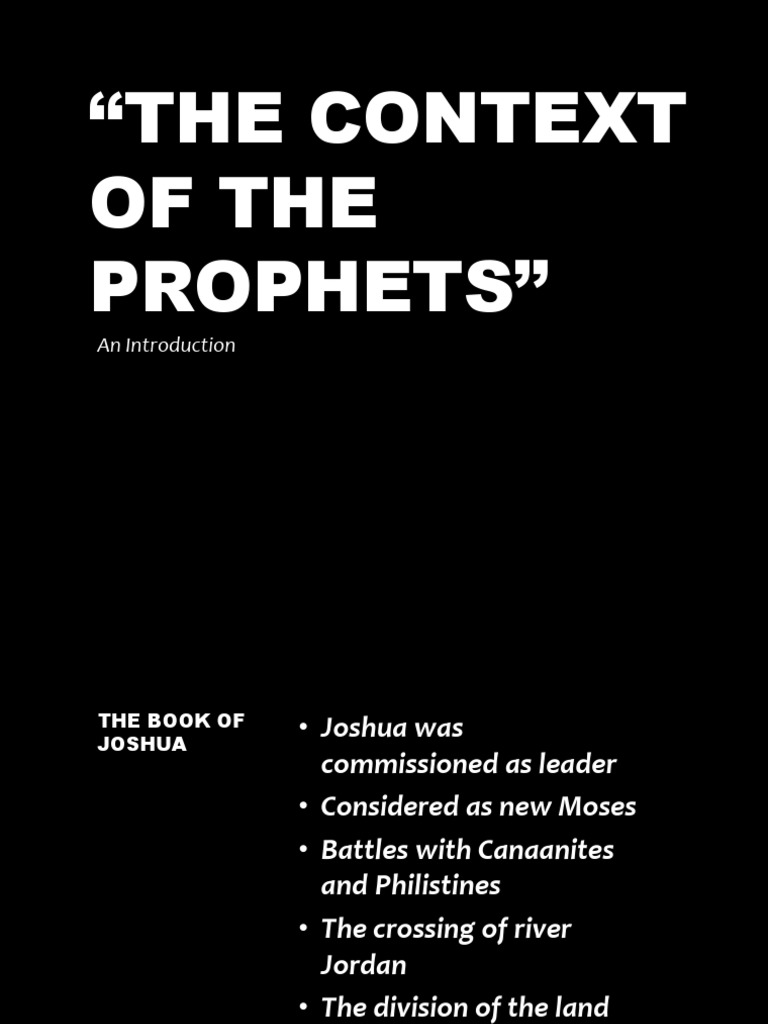In the exploration of Bahá’í teachings, the role of the Prophets emerges as a profoundly significant theme, intricately entwined with the concept of divine guidance and enlightenment. The Bahá’í Faith, as a distinct world religion, reveres the Prophets not only as historical figures but also as embodiments of a divine purpose that extends beyond their immediate context. Their perennial influence serves as a lens through which humanity can navigate the oft tumultuous waters of societal evolution and spiritual elucidation.
The Prophets of God have historically played pivotal roles in shaping societal norms, ethical frameworks, and spiritual understandings among diverse civilizations. Their teachings resonate through the ages, inspiring shifts in perspective and encouraging subsequent generations to pursue both individual and collective upliftment. This article delves into the manifold layers of the influence exerted by these divine emissaries, unraveling the depths of their messages and the transformative potential inherent within.
Primarily, the concept of prophetic revelation as a multi-faceted process warrants examination. Each Prophet, whether known as a Manifestation of God or a Divine Messenger, is depicted as possessing a unique station that contributes to humanity’s spiritual evolution. This plurality of revelation suggests that truth is not monolithic but rather a dynamic tapestry woven by diverse strands of divine wisdom. Through this lens, the teachings of the Prophets prompt adherents to cultivate an expansive worldview—one that embraces spiritual relativism while remaining anchored in the oneness of God.
Furthermore, the Prophets’ teachings often center around fundamental principles of unity, justice, and love. These universal tenets transcend cultural and geographical boundaries, fostering a collective consciousness that champions peace and understanding. For instance, when one considers the words of Bahá’u’lláh, the Prophet-Founder of the Bahá’í Faith, it becomes clear that his emphasis on the oneness of humanity offers a revolutionary shift in perspective. Adopting this viewpoint invites individuals to question preconceived notions of separation, moving towards a paradigm of interconnectedness.
As the teachings unfold, they encourage an innate curiosity about the divine purpose behind life itself. The exploration of the Prophets’ roles propels believers into a profound engagement with spiritual ideals and ethical responsibilities. Rather than viewing the Prophets solely through a historical lens, practitioners are inspired to perceive them as exemplars of moral fortitude and spiritual diligence. The dynamics of their lives and missions beckon followers to reflect internally and strive for personal transformation.
An integral aspect of the Prophets’ influence lies in their capacity to challenge societal norms. The teachings of each Manifestation often emerge as a critique of prevailing injustices and moral failings, thus instigating societal reform. The call to action embedded in these teachings invites individuals to not merely observe the state of the world but to actively partake in its betterment. The transformative potential of this engagement instills hope and instigates change, often at significant personal cost to the Prophet themselves.
Moreover, the integration of the arts and sciences within the framework of Bahá’í teachings underscores another dimension of the Prophets’ penetrating influence. Their encouragement of the pursuit of knowledge reflects a profound understanding of the symbiotic relationship between spirituality and intellectual inquiry. The resultant harmony between these realms advocates for a balanced approach to life, prompting followers to seek truth in all its forms, whether it be through scientific exploration or artistic expression. This holistic perspective is imperative in cultivating a generation that can contribute meaningfully to an intricate world.
In discussing the impact of the Prophets, one must also consider the evolution of religious thought as influenced by their divine revelations. Each new era heralded by a Prophet offers a fresh interpretation of spiritual truths, providing humanity with tools to address contemporary challenges. This evolutionary approach encourages adherents to embrace adaptability and progressiveness in their spiritual practice, anchoring themselves in the foundational teachings while being open to new insights. The continual unfolding of truth underscores the necessity for ongoing discourse and reevaluation of beliefs, ensuring that the teachings remain relevant across generations.
Additionally, the Prophets engender a sense of global stewardship that resonates profoundly within the contemporary context. The burgeoning interconnectivity of the modern world necessitates a response rooted in shared values and collective responsibility. The emphasis on unity, as propounded by the Prophets, aligns seamlessly with today’s pressing global challenges—climate change, social injustice, and the plight of marginalized communities. Their teachings promote a proactive approach to fostering a just society, compelling followers to engage actively in the betterment of their communities.
In summary, the Bahá’í teachings elucidate the Great Penetrating Influence of the Prophets, revealing a transformative legacy that continues to echo through the corridors of time. By embodying principles of love, justice, and unity, the Prophets beckon humanity to a profound exploration of purpose and connection. The shift in perspective invoked by their teachings cultivates a fertile ground for curiosity, prompting individuals to seek deeper understandings and act as catalysts for change. As humanity stands at a crossroads, the wisdom imparted by these celestial figures offers a guiding light, inspiring a collective journey towards a new dawn of spiritual awakening and socio-economic equity.
